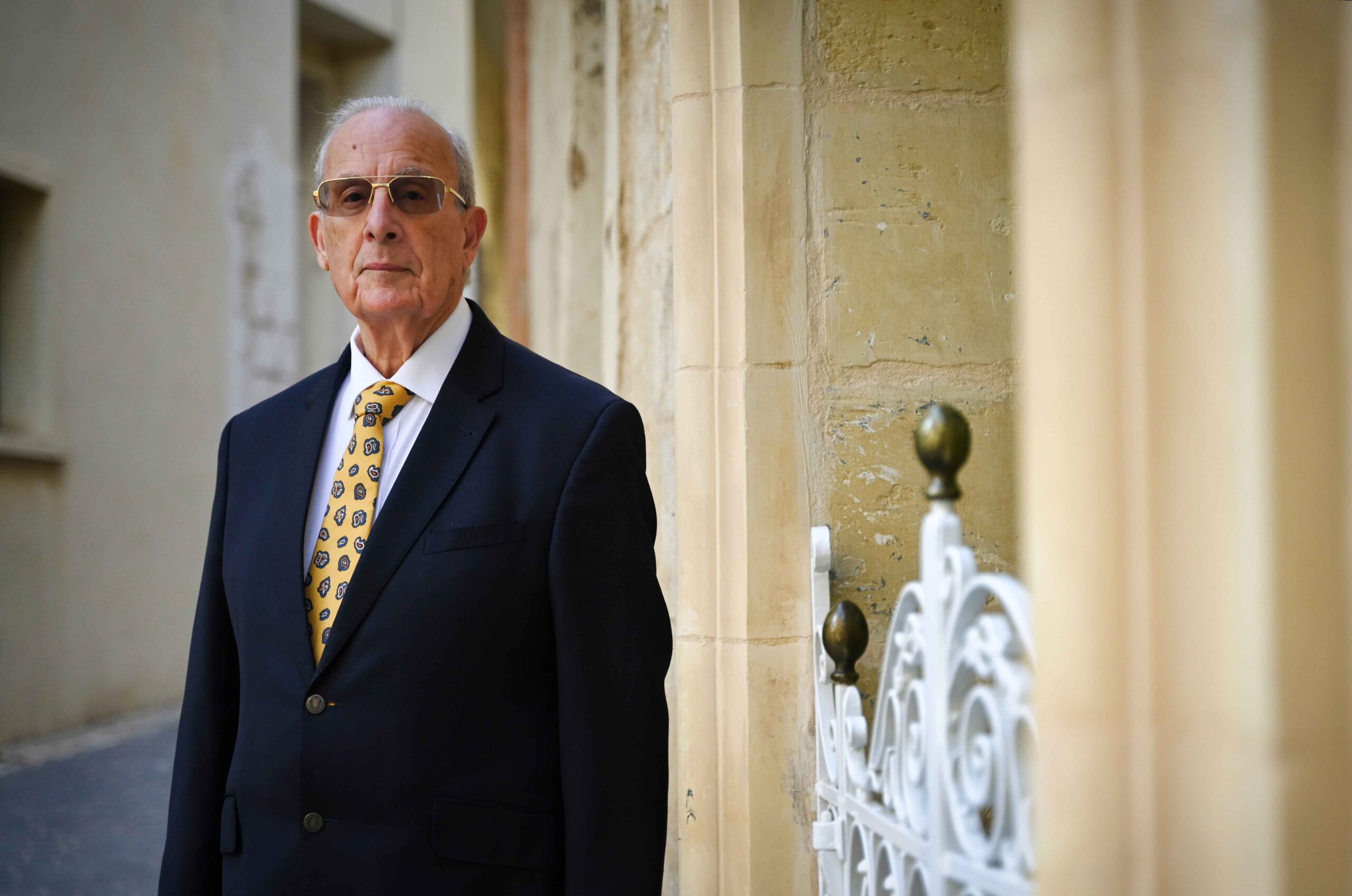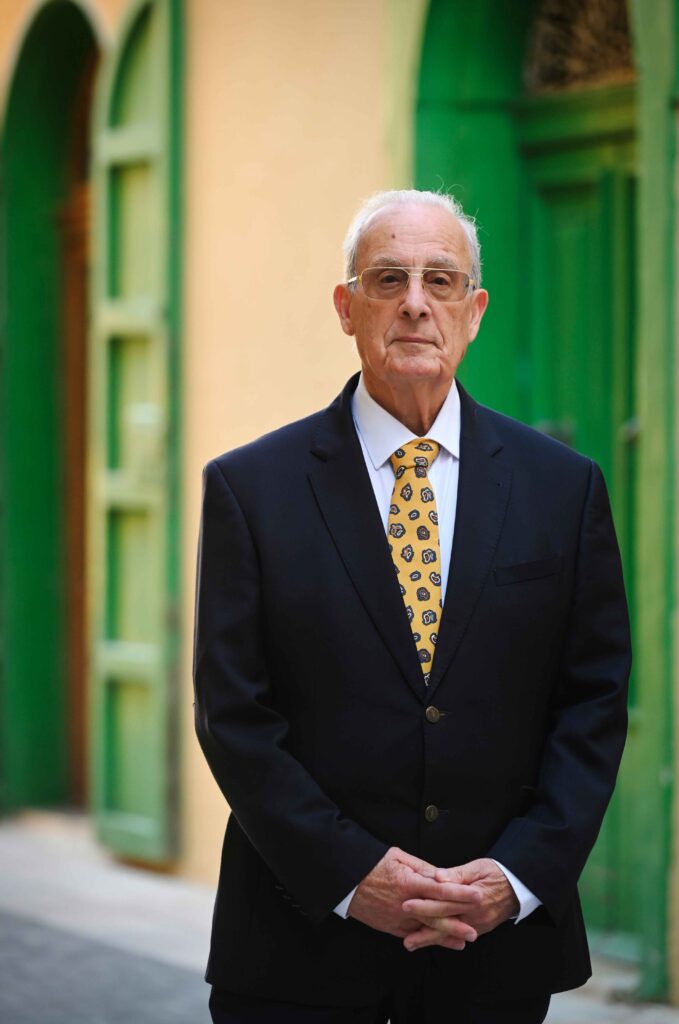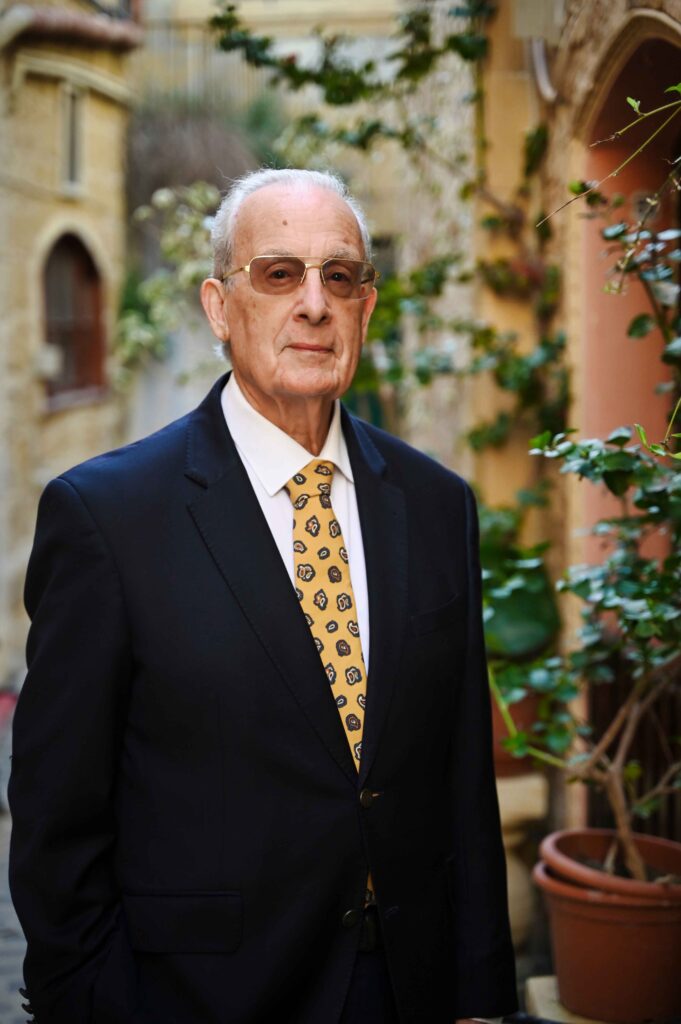


Published on 23 April 2025
•
6 min read

Joseph C. Schembri is a stalwart of the local audit sector. With half a century of experience in the field, he has seen Malta’s economic fortunes shift, fluctuate, and transform, holding senior roles within some of the country’s most affluent and influential financial institutions. His recent appointment as a member of the Board of Directors at Tumas Group marks a significant milestone in a distinguished career, allowing him to channel his wealth of experience for the benefit of one of Malta’s most prominent business groups.
Following his studies in the UK, Mr Schembri pursued and completed his ACCA examinations in 1975 while employed at Joseph Tabone & Co, a local accountancy firm. By 1977, he had become a partner, and the firm would eventually evolve into the local branch of Big Four audit firm KPMG. What began as a company with just 10 employees was destined to become one of the most significant organisations in Malta’s corporate landscape.
“When I became partner, my role was primarily auditing local companies and other entities. At the time, there was a sizeable number of German manufacturing companies operating in Malta, producing all sorts of textiles, spectacles, and electronics,” Mr Schembri recalls.

One notable development for Mr Schembri during this period was the dramatic shift in female participation in the workforce, which he describes as a veritable emancipation movement taking root. “This was the time when young women began actively participating in the formal workforce, particularly in manufacturing roles, mainly textiles. Between 1982 and 1985, the economy slowed and unemployment was high. Fortunately, this did not last long, and by 1987 the economy had picked up again,” he explains.
Yet with growth came the challenges of a maturing economy. Malta began to lose its competitive edge for certain industries reliant on low labour costs. “Over time, Malta became less viable for the textile industry, and many companies relocated to countries with lower wage structures. What stood out most was German clients privately admitting that production costs in Malta had actually exceeded those in Germany. It was no longer sustainable to operate here,” Mr Schembri notes. For Malta’s economy, it marked the beginning of a necessary shift up the value chain.
During this same period, Mr Schembri was also involved in the Government-led consultancy process behind the establishment of the financial services industry – today one of the country’s most important economic pillars.
“The Malta International Business Activities Act of 1989 brought about exciting new opportunities and economic activity, particularly in financial services, including banking. One crucial point we stressed repeatedly during the consultation process was the need for bipartisan agreement between Government and Opposition if the financial services industry was ever to succeed. Thankfully, all sides recognised its importance and have consistently placed this sector above political interests. That, I believe, is one of the reasons it continues to thrive today,” he shares.
Meanwhile, the accountancy profession was facing significant challenges of its own, as it struggled to keep pace with the country’s economic growth. The shortage of qualified professionals was being acutely felt. “Competition among the Big Four firms intensified, but demand for skilled professionals wasn’t limited to audit firms. As businesses expanded and corporate governance became more defined, we witnessed the emergence of the Chief Financial Officer role to oversee an organisation’s financial strategy. Other sectors, such as gaming and pharma, also continued to grow, placing additional pressure on the profession,” Mr Schembri notes.
Over time, new legislation across various sectors brought changes to how accountancy firms provided services such as audit, tax and advisory – necessitating a deeper level of specialisation. During his tenure as Partner and eventually as Senior Partner at KPMG, Mr Schembri’s role also covered Human Resources, providing him with a full view of how the profession was evolving.

“I was honoured to oversee the recruitment of staff and to see them grow within the organisation – this gave me great satisfaction. I am especially proud that several of the country’s present partners or directors at local firms were, at some point, interviewed and recruited during my time at the firm. I always insisted on the importance of staying abreast of the latest developments in the profession to provide the best service possible. I also stressed the importance of remaining impartial and never yielding to pressures from clients. It is better to lose a client than to lose your reputation, a maxim I sought to practise religiously rather than preach,” Mr Schembri would tell his recruits.
“Seeing people leave the firm to pursue their own careers elsewhere was never easy, but this was a natural process that I learned to accept, especially since such firms are ideal training grounds for industry,” Mr Schembri continues.
Reflecting on the changes the auditing profession has undergone, Mr Schembri is unequivocal in stating that it has become incomparably more demanding. “Specialisation is essential in today’s diversified industry, particularly in banking, insurance, gaming, and funds,” he declares.
Turning to his role at Tumas Group, he recalls his involvement in auditing the group’s accounts during his time as Partner at KPMG. Having worked closely with founder Tumas Fenech – from whom the group takes its name – as well as George Fenech and the current Chairman and CEO Raymond Fenech, Mr Schembri earned a reputation for his discipline and expertise in the financial field.
“I was fortunate enough to work with all three generations of the group’s leadership, watching it grow from a modest company with big ambitions into the major economic player it is today. More recently, I was asked to sit on a committee established to report on internal matters and governance within the group. Once the reports were submitted, the group decided to install a new Board of Directors comprising three Executive Directors and five Non-executive Directors. Mr Fenech invited me to sit on the Board of the group, and eventually of Tumas Investments plc – an honour I accepted wholeheartedly,” Mr Schembri explains.
“The group is a family-owned enterprise now in its third generation. This brings with it considerable complexity, but also tremendous opportunity,” Mr Schembri says, looking ahead with optimism towards the continued evolution of both the group and Malta’s wider economic landscape.

Edward Bonello is a content writer, PR consultant and generally chill fellow. When he’s not happily tapping away at his laptop, he enjoys collecting useless trivia, watching B-movies, and cooking the most decent carbonara this side of Trastevere.


